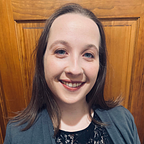I Realized I’m Autistic in My Late Twenties
For as long as I remember, people have told me I’m different. It’s a confusing thing to be told; I thought everyone was unique, so I never understood why people felt the need to tell me specifically. Plus, it can be a compliment or an insult depending on the context, and it’s not always clear to me which one it is.
Alongside that, I’ve always felt misunderstood. I’ve lived with an underlying awareness that I’m an outcast and will never fit in, but there was never anything tangible to validate that. It gnawed at me, and it’s only recently that I knew why.
Long story short, I’m autistic.
I’m 29 years old and only realized this a year ago. Sadly, I’m among many who go through decades of life without this invaluable awareness.
Autism is widely known as a shortcoming and a disability of varied severity. But at its core, autism is a neurotype and simply put, means that I think and see the world differently. It can be a blessing or a curse depending on the context.
I’m undiagnosed and am okay with that.
The psychiatric community had me incorrectly diagnosed with bipolar disorder for 8 years, so forgive me if I don’t trust the system that’s supposed to help me. I don’t mean to stigmatize bipolar disorder (or any mental illness) but to briefly express how frustrating it was to get treatment for something I don’t have.
- I do have a mental illness — brief psychotic disorder — and was fortunate to find a decent psychiatrist a couple years ago when I suspected I was misdiagnosed. My bipolar diagnosis was always based on people’s external observations during my psychotic episodes, rather than what was happening in my head. My psychiatrist at the time asked in-depth questions about my state of mind, and it resulted in a much more accurate diagnosis.
Beyond a well founded mistrust of psychiatry, when I first started realizing I’m autistic last year, I asked my psychiatrist (not the same one mentioned above) for recommendations to get a formal diagnosis, and her response was, “You make eye contact and communicate well; there’s no way.” Then she went on a rant about how too many people are getting diagnosed with autism these days.
There’s actually more awareness, thanks to the internet and easier access to information. Sadly, that’s not obvious to most people.
The best information about autism is written by autistic people, but it’s not necessarily easy to find.
The average Google search presents articles written by neurotypical people from a neurotypical perspective — it’s not accessible, nor relatable to most autistic people. The information tends to be antiquated and based on autism in young boys.
Autism usually presents differently in women. That definitely applies to me — I’m reasonably social and extroverted, for instance — and it made it even more difficult to find good information.
Eventually I found articles about autistic women, written by autistic women, and found descriptions of myself. These traits and experiences have been a constant in my life:
- I have sensory sensitivities, particularly fabrics, textures, and smells
- I hyperfocus on tasks and when in that state of mind, I’m completely oblivious to my surroundings
- I go nonverbal when I’m overwhelmed
- I’m often unaware of my emotions until later, if at all (alexithymia)
- I’m clumsy and uncoordinated
- I stim, especially with my hands and legs
- I need routines and organization
- My interests and hobbies are vast and ever-changing, rarely lasting (special interests)
- I’m blunt and serious
- I have excellent pattern recognition skills, especially creatively
- I don’t smile while talking, not naturally anyway — I’ve always been told to smile more, which takes conscious effort
- In any given conversation, things I say tend to be taken in a negative way I didn’t even think of
- I remain loyal to people who haven’t earned my loyalty
- I’m a horrible judge of character
- I’ve lost many friendships suddenly and didn’t know why (and still don’t)
- I practice conversations and scenarios in my head before they happen
…to name a few. I have many more autistic traits not described above.
As I gradually realized I’m autistic, I saw my life experiences in a whole new light, and my only regret is that I didn’t know sooner.
I’m sure I’ll write more about this revelation in the future. For now, please understand that my choice of language is well thought out and intentional. As it pertains to me, I prefer to be called autistic, never the following:
- “A woman/person with autism.” Person first language is ableist and furthers stigma. I use identity-first language exclusively.
- “On the autism spectrum.” I believe this phrase is an attempt to sugarcoat autism, rather than foster education and understanding. Furthermore, I find that ‘spectrum’ is a misused word in all contexts.
- “Asperger’s/woman with Asperger’s/etc.” This word, as well as the person behind it, has anti-Semitic roots. Enough said.
- “High functioning.” Functioning labels — high functioning/low functioning — discourage people from understanding autism. ‘Low functioning’ is people’s way of identifying nonverbal autistic people, while ‘high functioning’ tends to identify verbal people who are thus viewed as deserving more respect. I believe non-verbal people deserve to be equitably acknowledged and heard in our society, so functioning labels aren’t useful; they give people a harmful way to stereotype autistic people.
I speak for myself, not for all autistic people on the above opinions. Some might have different perspectives on the above, and these individuals’ preferences should be respected too.
If you’re someone from my personal life, don’t hesitate to ask me questions about being autistic, so long as they’re non-judgmental and from a genuine place of wanting to learn. I’m certain I’m autistic and am only interested in conversations about it with people who accept that fact.
